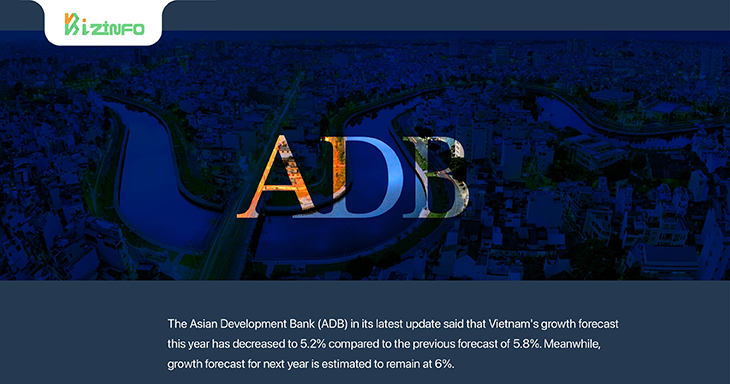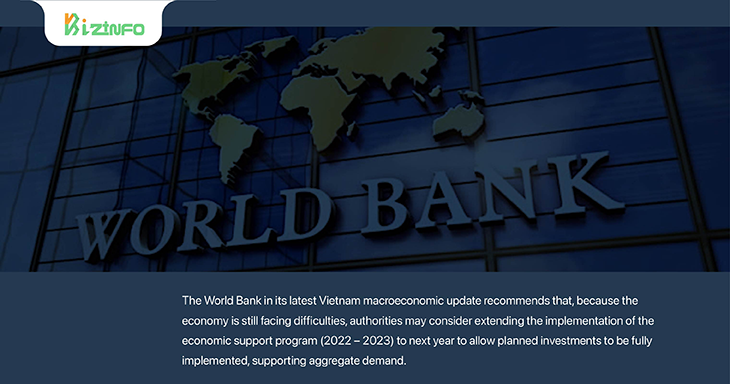Published Dec 2023
Risks to Vietnam's economic prospects in 2024
Vietnam’s economic growth in 2024 is believed to face risks from a weaker-than-expected recovery in external demand.

Weak external demand
The Asian Development Bank (ADB), in its latest update, said that Vietnam's growth forecast this year has decreased to 5.2% compared to the previous forecast of 5.8%. Meanwhile, the growth forecast for next year is estimated to remain at 6%.

ADB assesses that the weaker-than-expected recovery in external demand continues to hinder industrial and service growth, slowing the recovery of employment and domestic consumption.
Prudent and proactive monetary policy, supported by effective control of gasoline, electricity, food, health care and education prices, will help control inflation.
Inflation forecast in Vietnam is maintained at 3.8% this year and 4% next year.
At the Vietnam Economic Pulse Forum (VEP) earlier this month, experts assessed that 2024 will continue to be a not-very-easy year for Vietnam's prospects as internal difficulties persist.
Along with that, the world's geopolitical situation is complicated and unpredictable, and world economic growth is forecast to decrease slightly. The economic growth of many of Vietnam's major trading partners is also forecast to decrease.
Not only that, inflation is expected to remain high, which means operating monetary policy will be more difficult.
The report of the Central Institute for Economic Management (CIEM) also points out that traditional growth drivers such as Ho Chi Minh City and Hanoi are growing slowly, and some new ones such as Hai Phong, Quang Ninh and Thanh Hoa are not really strong.
In the recent credit rating upgrade announcement for Vietnam, Fitch Ratings pointed out that some challenges facing the Vietnamese economy include short-term growth difficulties, and lower development indicators with countries in the same development segment.
Growth momentum to be regained
According to Fitch, with the Government continuing to implement supportive policies to stimulate growth and stabilize the macroeconomy, Vietnam's economy will regain growth momentum in the near future.

The World Bank in its latest Vietnam macroeconomic update recommends that, because the economy is still facing difficulties, authorities may consider extending the implementation of the economic support program (2022 – 2023) to next year to allow planned investments to be fully implemented, supporting aggregate demand.
Not only that, in the context of economic recession, the weaknesses of the financial sector require continued vigilance.
At the same time, efforts to restore confidence and promote healthy development of the real estate market will be the key to supporting short-term economic stability and long-term economic growth, the World Bank emphasized.
Source: WB, ADB, Fitch
Compiled by VBI


